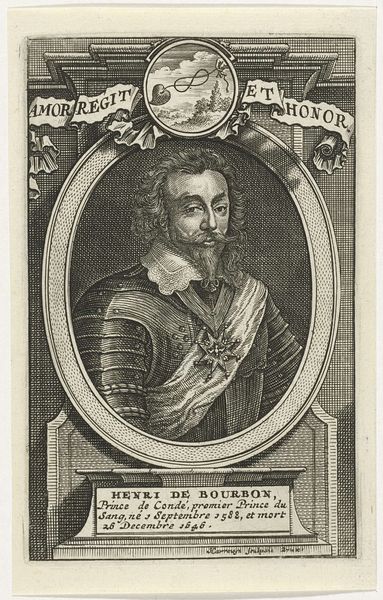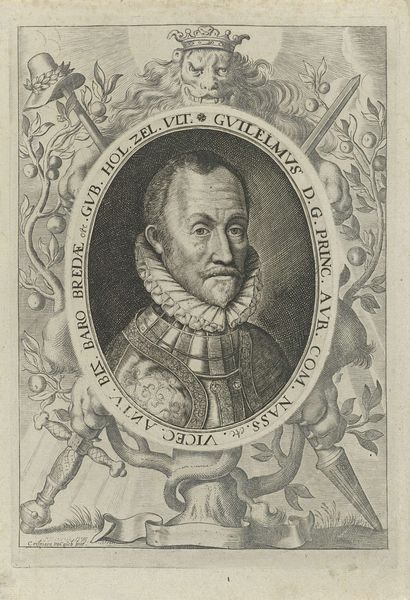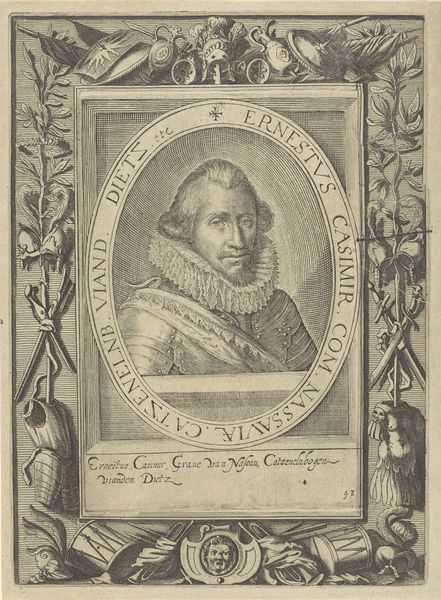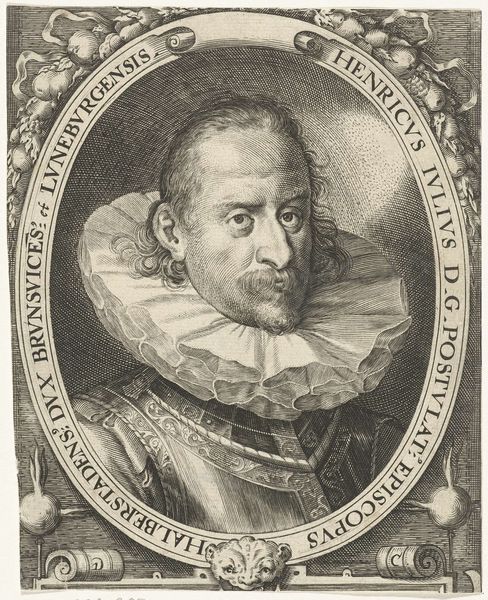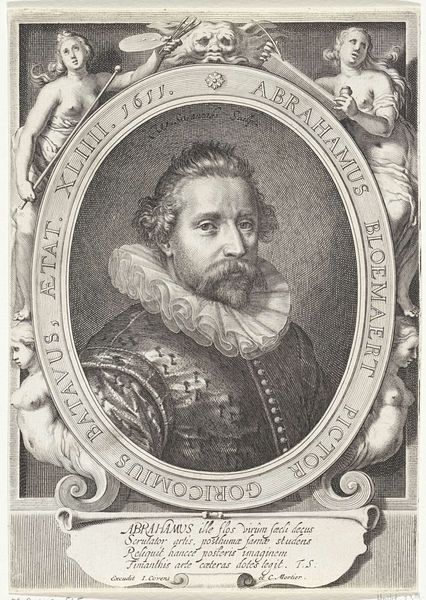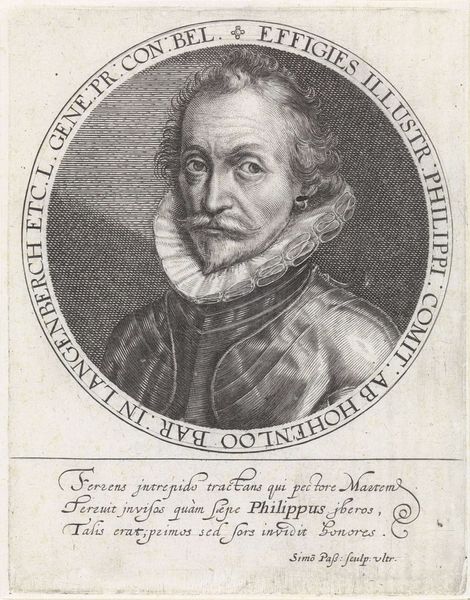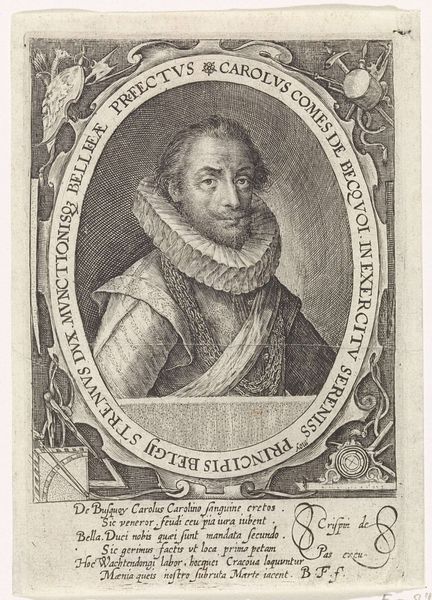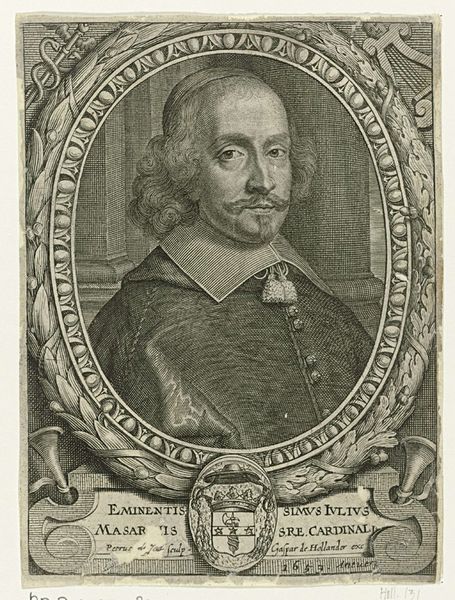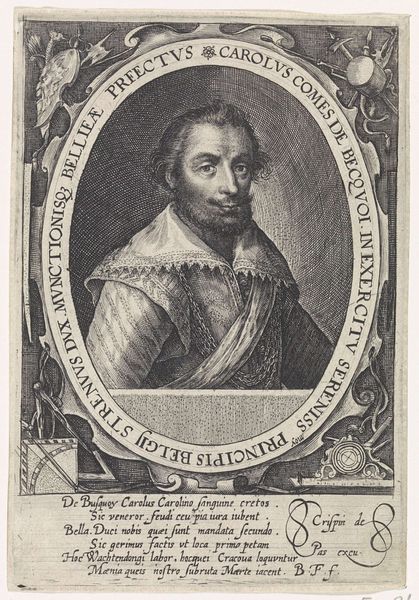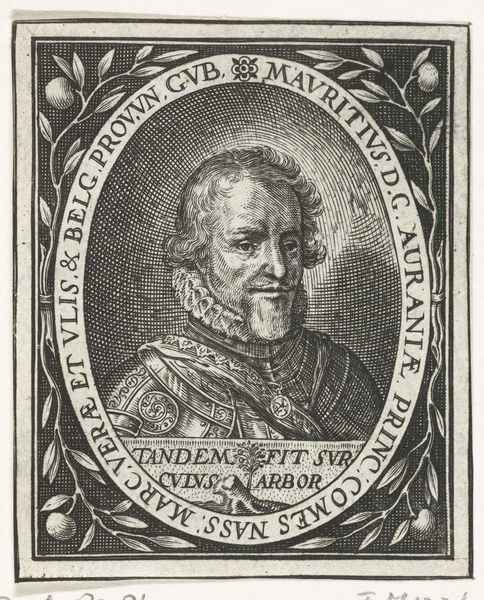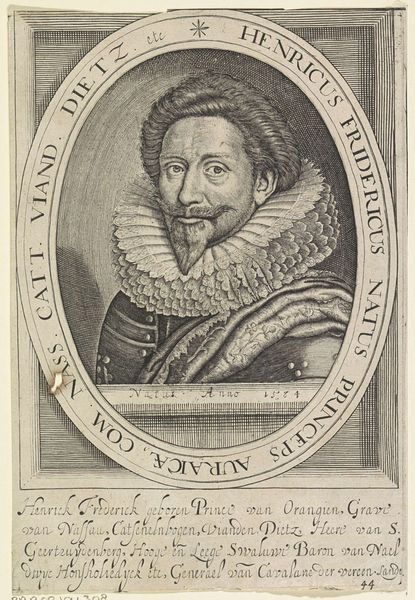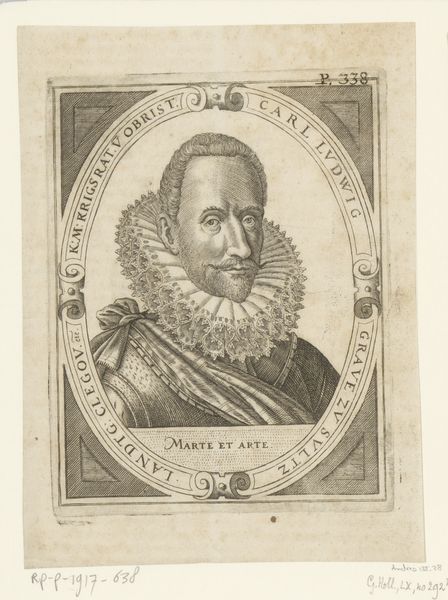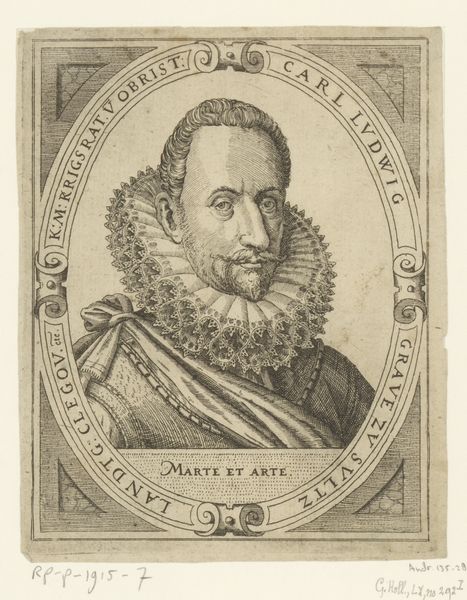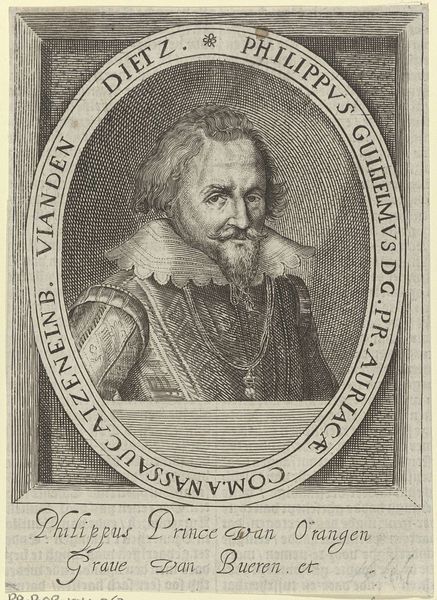
print, engraving
#
portrait
#
baroque
# print
#
old engraving style
#
engraving
Dimensions: height 157 mm, width 122 mm
Copyright: Rijks Museum: Open Domain
Herman Breckerveld’s etching presents Philipp, Count of Hohenlohe, framed by an oval border filled with text. The armor and lace collar denote nobility and military prowess, evoking a sense of power and authority. Consider how armor appears in classical sculpture, offering a protective layer, as well as a symbol of strength. But observe its transformation across time. In the Renaissance, armor became intricately designed, reflecting not only defense but also artistic expression and status. Like the classical sculptures, the Count’s armour, despite being metal, attempts to render the body in an idealized, heroic form. Reflect on the psychoanalytic implications: the armor and lace collar, while practical, also function as a mask, concealing vulnerabilities. Across history, dress codes and uniforms have played a part in shaping identity, reflecting how we seek to both protect and present ourselves. The symbols resonate with the collective memory of human struggles, power, and identity, creating a deep, subconscious connection with the viewer.
Comments
No comments
Be the first to comment and join the conversation on the ultimate creative platform.
